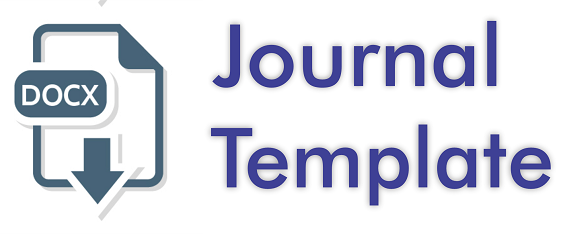Analisis Pengaruh Pembiayaan Murabahah, Pembiayaan Musyarakah Dan Sertifikat Bank Syariah (Sbs) Terhadap Profitabilitas Dengan Struktur Modal Sebagai Variabel Intervening Pada Perbankan Syariah Di Indonesia
DOI:
https://doi.org/10.59107/ri.v1i1.17Keywords:
Pembiayaan Murabahah, Pembiayaan Musyarakah, SBIS, Profitabilitas dan Struktur Modal.Abstract
This study aims to determine how influential Murabahah financing, Musyarakah financing and Bank Syariah Certificates (SBS) are on profitability with the Mode Structure as an intervening variable in Islamic banking in Indonesia. The population in this study were Islamic banks in Indonesia from 2016 to 2020. While the research sample used was Secondary data on annual accounts of Islamic banks. Data collection techniques are using literature studies, documentation and internet research. Based on the results of this study: Murabahah financing has no effect on the profitability of Islamic banks. Musyarakah financing affects the profitability of Islamic banks. Bank Syariah Certificate (SBS) has an effect on the Profitability of Islamic Banks. Murabahah Financing, Musyarakah Financing and Bank Syariah Certificates (SBS) together have an effect on the Profitability of Islamic Banks. Capital structure is not able to mediate the effect of Murabahah Financing on the Profitability of Islamic Banks. The Capital Structure is not able to mediate Musyarakah Financing on the Profitability of Islamic Banks. Capital Structure is not able to mediate Bank Syariah Certificates (SBS) on the Profitability of Islamic Banks.
Downloads
References
Aisah, S. (2020). Pengaruh Pembiayaan Musyarakah, Murabahah, Dan Sertifikat Bank Indonesia Syariah (Sbis) Terhadap Return On Assets (Roa) Bank Umum Syariah Di Indonesia Dengan Non Performing Financing (Npf) Sebagai Variabel Intervening (Periode 2015–2019).
Amini, N., & Wirman. (2021). Pengaruh Pembiayaan Murabahah, Mudharabah, Dan Musyarakah Terhadap Profitabiltas Returnon Assets Pada Bank Syariah Mandiri. Jurnal Ilmiah Mea.
Anggraini, N. (2020). Analisis Pengaruh Sertifikat Bank Indonesia Syariah (Sbis), Non Performing Financing (Npf), Dan Dana Pihak Ketiga (Dpk) Terhadap Profitabilitas Perbankan Syariah Di Indonesia: Periode Jan 2015–Sep 2019. Uin Walisongo.
Azizah, S. N., & Mukaromah, S. (2020). The Effect Of Murabaha Financing, Profit Sharing Financing, Intellectual Capital, And Non Performing Financing (Npf) On Financial Performance. Jurnal Reviu Akuntansi Dan Keuangan, 10(1), 150–160. Https://Doi.Org/10.22219/Jrak.V10i1.11323
Farida, A. (2020). Analisis Pembiayaan Musyarakah Terhadap Profitabilitas (Roa) Bank Umum Syariah. Malia: Jurnal Ekonomi Islam, 11(2), 327–340.
Febriyanti, A. R. (2020). Pengaruh Struktur Modal, Efisiensi Operasional, Kualitas Aset, Likuiditas, Dan Indikator Makroekonomi Terhadap Profitabilitas Bank Syariah Di Indonesia Tahun 2014-2018. Universitas Airlangga.
Hakim, L., & Anwar, A. (2017). Pembiayaan Murabahah Pada Perbankan Syariah Dalam Perspektif Hukum Di Indonesia. Al-Urban, 1(2), 212–223.
Hidayah, K. (2020). Pengaruh Dpk, Fdr Dan Sbis Terhadap Profitabilitas Sebagai Variabel Intervening Pada Bank Umum Syariah Periode 2015-2019. Iain Salatiga, 1–133.
Ismawati, Taufik, M., & Fitri, A. (2020). Pengaruh Pembiayaan Mudharabah, Musyarakah Dan Murabahah Terhadap Profitabilitas (Studi Pada Bank Umum Syariah Di Indonesia Tahun 2015 - 2019). Islamic Banking, Economic And Financial Journal.
Kusuma, R. A. (2019). Pengaruh Pembiayaan Mudharabah, Pembiayaan Musyarakah, Pembiayaan Sewa/Ijarah, Dan Pembiayaan Murabahah Terhadap Profitabilitas Bank Muamalat Indonesia (Periode 2012-2018). In Analisis Fiqih Dan Keuangan.
Lestari, D. S. (2019). Analisis Pengaruh Sertifikat Bank Indonesia Syariah (Sbis), Inflasi, Dan Net Interest Margin (Nim) Terhadap Kinerja Keuangan Dengan Financing To Deposit Ratio (Fdr) Sebagai Variabel Intervening Pada Bank Umum Syariah Di Indonesia Periode 2014–2018. Iain Salatiga.
Lestari, U. T. M., & Cahyono, H. (2019). Benarkah Pembiayaan Murabahah Berpengaruh Terhadap Profitabilitas. Jurnal Ekonomi Islam.
Maradjabessy, I. (2018). Pengaruh Tata Kelola Perusahaan Dan Penggunaan Derivatif Keuangan Terhadap Praktik Penghindaran Pajak (Tax Avoidance). Skripsi-2018.
Marisya, F. (2019). Analisis Pengaruh Struktur Modal (Car) Dandana Pihak Ketiga (Fdr) Terhadap Profitabilitas (Roa) Dengan Kredit Bermasalah (Npf) Sebagai Varibel Intervening Pada Perbankan Umum Syariah Di Indonesia. Jaz: Jurnal Akuntansi Unihaz, 2(2), 1–18.
Ningrum, D. P. (2020). Pengaruh Rasio Kesehatan Bank, Struktur Modal, Ukuran Perusahaan Dan Pembiayaan Bagi Hasil Terhadap Profitabilitas Bank Syariah. Universitas Islam Sultan Agung Semarang.
Novita, W., Ekonomi, F., & Ibrahim, M. M. (2020). Determinan Profitabilitas Bank Syariah Di Indonesia (Studi Pada Bank Umum Syariah Periode 2013-2018).
Ramadhanty, R., & Soelistyo, A. (2020). Analisis Faktor Yang Mempengaruhi Profitabilitas (Roa) Bank Syariah Di Indonesia Tahun 2014-2018. Jurnal Ilmu Ekonomi Jie, 4(2), 294–308.
Ramlan, H., & Adnan, M. S. (2016). The Profitability Of Islamic And Conventional Bank: Case Study In Malaysia. Procedia Economics And Finance, 35(October 2015), 359–367. Https://Doi.Org/10.1016/S2212-5671(16)00044-7
Sudarsono, H. (2017). Analisis Pengaruh Kinerja Keuangan Terhadap Profitabilitas Bank Syariah Di Indonesia. Economica: Jurnal Ekonomi Islam. Https://Doi.Org/10.21580/Economica.2017.8.2.1702
Ubaidillah, U. (2017). Analisis Faktor-Faktor Yang Mempengaruhi Profitabilitas Bank Syariah Di Indonesia. El-Jizya : Jurnal Ekonomi Islam. Https://Doi.Org/10.24090/Ej.V4i1.2016.Pp1510188
Utami, N. D. (2020). Pengaruh Pembiayaan Murabahah, Tabungan Wadiah, Tabungan Mudharabah Dan Deposito Mudharabah Terhadap Profitabilitas (Roa) Pada Bank Bri Syariah.
Verizaliani, V. D. (2021). Pengaruh Pembiayaan Murabahah Dan Musyarakah Terhadap Profitabilitas. Competitive Jurnal Akuntansi Dan Keuangan, 5(2), 205. Https://Doi.Org/10.31000/Competitive.V5i2.4324
Downloads
Published
Issue
Section
License
Copyright (c) 2023 RISALAH IQTISADIYAH: Journal of Sharia Economics

This work is licensed under a Creative Commons Attribution 4.0 International License.
License
The non-commercial use of the article will be governed by the Creative Commons Attribution license as currently displayed on http://creativecommons.org/licenses/by/4.0/. This licence allows the user to distribute, remix, tweak, and build upon the licensed work, including for commercial purposes, as long as the original author is credited.
Author’s Warranties
The author warrants that the article is original, written by stated author/s, has not been published before, contains no unlawful statements, does not infringe the rights of others, is subject to copyright that is vested exclusively in the author and free of any third party rights, and that any necessary written permissions to quote from other sources have been obtained by the author/s.
User Rights
Under the Creative Commons Attribution license, the author(s) and users are free to share (copy, distribute and transmit the contribution).
Rights of Authors
Authors retain the following rights:
- copyright, and other proprietary rights relating to the article, such as patent rights,
- the right to use the substance of the article in future own works, including lectures and books,
- the right to reproduce the article for own purposes, provided the copies are not offered for sale,
- the right to self-archive the article.
Co-Authorship
If the article was prepared jointly with other authors, the signatory of this form warrants that he/she has been authorized by all co-authors to sign this agreement on their behalf, and agrees to inform his/her co-authors of the terms of this agreement.
Termination
This agreement can be terminated by the author or RISALAH IQTISADIYAH: JOURNAL OF SHARIA ECONOMICS upon two months’ notice where the other party has materially breached this agreement and failed to remedy such breach within a month of being given the terminating party’s notice requesting such breach to be remedied. No breach or violation of this agreement will cause this agreement or any license granted in it to terminate automatically or affect the definition of RISALAH IQTISADIYAH: JOURNAL OF SHARIA ECONOMICS.
Royalties
This agreement entitles the author to no royalties or other fees. To such extent as legally permissible, the author waives his or her right to collect royalties relative to the article in respect of any use of the article by RISALAH IQTISADIYAH: JOURNAL OF SHARIA ECONOMICS or its sublicensee.
Miscellaneous
RISALAH IQTISADIYAH: JOURNAL OF SHARIA ECONOMICS will publish the article (or have it published) in the Journal, if the article’s editorial process is successfully completed and RISALAH IQTISADIYAH: JOURNAL OF SHARIA ECONOMICS or its sublicensee has become obligated to have the article published. RISALAH IQTISADIYAH: JOURNAL OF SHARIA ECONOMICS may conform the article to a style of punctuation, spelling, capitalization and usage that it deems appropriate. The author acknowledges that the article may be published so that it will be publicly accessible and such access will be free of charge for the readers. RISALAH IQTISADIYAH: JOURNAL OF SHARIA ECONOMICS will be allowed to sublicense the rights that are licensed to it under this agreement.



.png)
.png)






